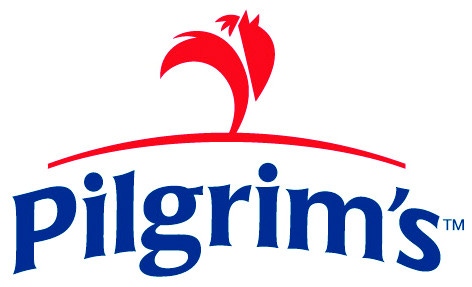Pilgrim’s Pride reports lower Q1 results
Weaker-than-seasonal markets in Mexico affect results but have begun to improve.

Pilgrim’s Pride Corp. reported lower first-quarter 2019 financial results compared to the same period last year. Net sales for the first quarter of were $2.72 billion, down from $2.75 billion in the first quarter of 2018. Earnings per share were 34 cents, down from 48 cents during the same period in 2018. Net Income was $84.0 million, down from $119.4 million the year before.
The company said weaker-than-seasonal markets in Mexico affected results but added that conditions are already improving in the second quarter. Europe also continued to be affected by a substantial increase in input costs, but Pilgrim's said it is offsetting the increase through capturing synergies and making adjustments in pricing models.
Despite the challenges, there was a significant sequential rebound in U.S. operations compared to the fourth quarter, which was driven by stronger markets as feature activities tracked much closer to seasonality.
“Our balanced portfolio has continued to evolve, realizing the results of investments made over the past few years to further widen our products and brands, strengthen key customer relationships and improve margin consistency,” the company said.
Pilgrim's chief executive officer Jayson Penn said, “After a very challenging market in 2018, we experienced a much better environment within our U.S. operations during [the first quarter], particularly in commodity large bird deboning, with demand from retailers and [quick-service restaurant] operators rebounding as they recognized the value of chicken.”
According to Penn, feature activities normalized to seasonal levels throughout the quarter, and the momentum has been sustained early into the second quarter. “Commodity boneless prices have already surpassed levels from a year ago and are close to the five-year average, while wing prices are near historical highs,” he said.
The company has been heavily investing in further differentiating its portfolio to increase its capacities and capabilities to meet customer expectations.
“The investments in the operations and the focus of our people have yielded an increase in performance, and further growth prospects remain available,” Penn said. “We are driving growth while continuing to pursue future opportunities by intensifying our efforts in innovation and marketing. We expect value-added, differentiated products to account for a larger portion of our total results over the next few years as we continue to reduce the volatility of our commodity sales mix.”
Pilgrim’s reported that chicken demand was also affected by more availability of imported pork from the U.S. during the quarter. However, the company believes chicken demand can continue to grow in line with historical rates longer term.
“The environment has already started to recover in [the second quarter], and prices have begun to react positively, with growing conditions reverting back to normal, demand improving and competition from pork imports declining,” Penn noted. “Our Prepared Foods have continued to grow at a double-digit rate and are generating great results under both premium Pilgrim’s and Del Dia brands to drive the evolution of our Mexican portfolio towards more differentiated, higher-value products, giving us a clear path to margin expansion.”
European operations have been affected by a substantial increase in input costs, including feed ingredients, higher utilities, labor and packaging. Pilgrim’s partially offset these increases by cost reduction initiatives, synergies and price adjustments, some of which have taken slightly longer than expected to be passed on and reflected in customer contracts.
“Despite the impact in results, we expect an improvement month over month as we adjust our prices based on key customer’s contracts and expect the full recovery within our pricing models,” Pilgrim's said.
About the Author(s)
You May Also Like



.png?width=300&auto=webp&quality=80&disable=upscale)

